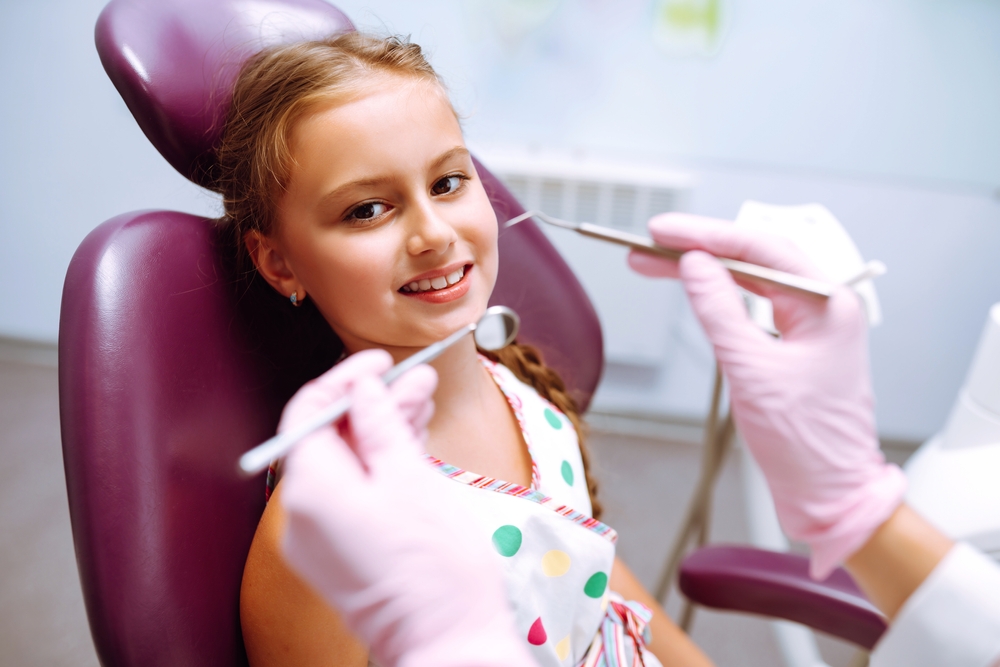Pediatric Pulp Therapy Near You
Pediatric pulp therapy, or pediatric pulpotomy, is especially important in young, permanent teeth with immature roots because the pulp is an integral part of normal development for the apex of the tooth’s root. When the pulp is exposed, your dentist might recommend pulp therapy to maintain the integrity and health of the tooth and the supporting tissues.
The pulp in a child’s teeth consists of the tissue, nerves, and blood vessels that fill the interior cavity and root canals of the teeth. The pulp is an important part of the tooth as it provides a blood supply with oxygen and nutrients for the tooth. When teeth are affected by cavities, a traumatic injury, or other causes, this can allow for pulp exposure, pain, and inflammation.
Contact Dental Care Group Kids today to book an appointment with our pediatric dentists. If you’re in Aventura, call (305) 935-1613. If you’re in Pembroke Pines, call (954) 430-2300.
Signs of an inflamed or infected pulp include:
- Constant or unexplained pain
- Pain at night
- Sensitivity to food temperatures, hot and cold
- Swelling around the problem tooth
Pediatric Pulp Therapy
Pulp therapy can be done in adult (permanent) or baby (primary) teeth. It is important to note that even though baby teeth will fall out, your dentist might suggest fixing any issues that arise in the problem teeth, unless they would normally fall out soon. Not only are baby teeth vital for chewing and speaking, they also hold spaces for the permanent teeth that replace them.
If a baby tooth is lost too soon, neighboring baby teeth can move into the empty space, possibly causing problems for permanent teeth coming in or causing teeth to grow in irregularly.
A pulpotomy is the surgical removal of an inflamed pulp chamber in a child’s tooth that has been compromised due to decay, cavities, or trauma. To prevent or alleviate an abscess or infection, it is necessary to remove the bacteria from the pulp chamber inside the tooth. This is commonly referred to as a “baby tooth root canal.”
Because baby teeth are not as strong and hard as adult teeth, and the nerve in the tooth is much closer to the outside, children are more sensitive to decay and tooth pain.
The dentist will remove the diseased pulp within the crown of the tooth, and place a special medicated filling that is put into the chamber in an attempt to keep the healthy and unaffected pulp root alive. The filling will help to prevent bacterial growth and infection, and also calm the nerves of the tooth.
Finally, a stainless steel or tooth-colored crown is placed on the tooth, which not only strengthens the tooth and minimizes the risk of future fractures, but also protects from food particles and bacteria.
Pediatric pulp therapy is a very common and very routine procedure, and can most often be performed in conjunction with other treatments, so the child doesn’t have to return to the office for multiple visits. Nitrous oxide (laughing gas) is a common conscious sedation option in pediatric dentistry and will help the child relax so he/she is less anxious.
Once the procedure is complete and the child is out of pain, it is imperative to maintain an effective oral hygiene routine at home and visit his/her dental team regularly. The dentist and hygienist will not only monitor the status of the treated tooth, but will work to prevent future decay so the child can avoid additional dental treatments.

